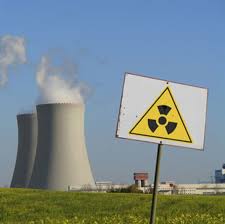nuclear energy
Going Nuclear?
Nuclear has some serious problems, but it may be worth hedging our technology bets.
Nuclear power has been an important source of zero-carbon energy, though it has been plagued by other problems. Does it have a future in our effort to decarbonize the grid? According to the Union of Concerned Scientists (UCS), a third of U.S. nuclear plants, or about twenty percent of the nation’s total nuclear capacity, are …
Continue reading “Going Nuclear?”
CONTINUE READINGAddressing Externalities: A Modest Proposal
How to make health and safety a personal priority for industry officials.
According to economists, firms have little reason to take into account the cost of externalities — that is to say, the harms their activities may impose on others. The traditional solutions are damage remedies or taxes to transfer the financial cost to the industry, or regulation to force industries to limit their harmful activities. Why not …
Continue reading “Addressing Externalities: A Modest Proposal”
CONTINUE READINGMitt Romney, Prisoner of the Tea Party
Just about any electoral map will tell you that Iowa is a swing state, and that Mitt Romney needs to win it if he hopes to capture the Presidency. Just about any political observer in Iowa will tell you that the wind energy tax credit, enacted as part of President Obama’s stimulus package (but with …
Continue reading “Mitt Romney, Prisoner of the Tea Party”
CONTINUE READINGThe story of the Price-Anderson Act: how Congress made nuclear power financially viable in the U.S. by eliminating accountability for risk
Ever wonder how nuclear power plants have been able to get financial backing in the U.S. despite the huge, and largely uncertain, potential risks they pose? Or why there are nuclear plants within a few hours’ drive of major population centers such as Los Angeles and New York? Or who will pay the costs that …
CONTINUE READINGJapan Nuclear Update
The NY Times has a very good page showing the current status of each of the six reactors. All of them remain problems in one way or another, either because of the reactors themselves or the spent fuel. The Post also has an interactive, featuring an animated presentation. No one seems to expect a full …
Continue reading “Japan Nuclear Update”
CONTINUE READINGBill O’Reilly Adopts the Precautionary Principle
Ann Coulter has written a column arguing that low doses of regulation are actually good for you. Through the so-called hormesis effect, she says, the low doses stimulate the body’s protective mechanisms and actually produce health benefits. She was interviewed by Bill O’Reilly about this. As Huffington reports: She repeated this assertion to a skeptical …
Continue reading “Bill O’Reilly Adopts the Precautionary Principle”
CONTINUE READINGWhy Do People Care So Much About Nuclear Accidents?
Well, for obvious reasons. But Ann, citing Will Saletan, raises a good question: why are people so much more concerned about nuclear accidents than, say oil spills or other environmental disasters? If we accept Saletan’s figures of “direct fatalities” being 18 times more dangerous for oil production per energy unit (and there are reasons not …
Continue reading “Why Do People Care So Much About Nuclear Accidents?”
CONTINUE READINGNuclear Fears v. Fears From Other Environmental Catastrophes
As Japan struggles to contain radiation from the nuclear reactors damaged in the double whammy of a massive earthquake followed by an even more devastating tsunami, the political consequences of the accident are already being felt around the globe. Germany has apparently put on hold, at least for now, plans to extend the operating lives of its nuclear power plants. …
Continue reading “Nuclear Fears v. Fears From Other Environmental Catastrophes”
CONTINUE READINGJapan’s Nuclear Reactors, Risk Assessment & Accident Theory
In the wake of Japan’s developing nuclear crisis, people have begun questioning the future of US nuclear policy. Here is Sen. Lieberman, cautiously arguing for a review of nuclear power safety: I think it calls on us here in the U.S., naturally, not to stop building nuclear power plants but to put the brakes on …
Continue reading “Japan’s Nuclear Reactors, Risk Assessment & Accident Theory”
CONTINUE READINGFrom the Department of Bad PR
From the Washington Post; “Obviously, any time you have an incident at a nuclear plant that involves any kind of damage or an explosion, it’s not good,” said Mitch Singer, spokesman for the Nuclear Energy Institute, the industry’s lobbying arm. “But in the scheme of things, is it a disaster? We don’t think so.” It …
Continue reading “From the Department of Bad PR”
CONTINUE READING




